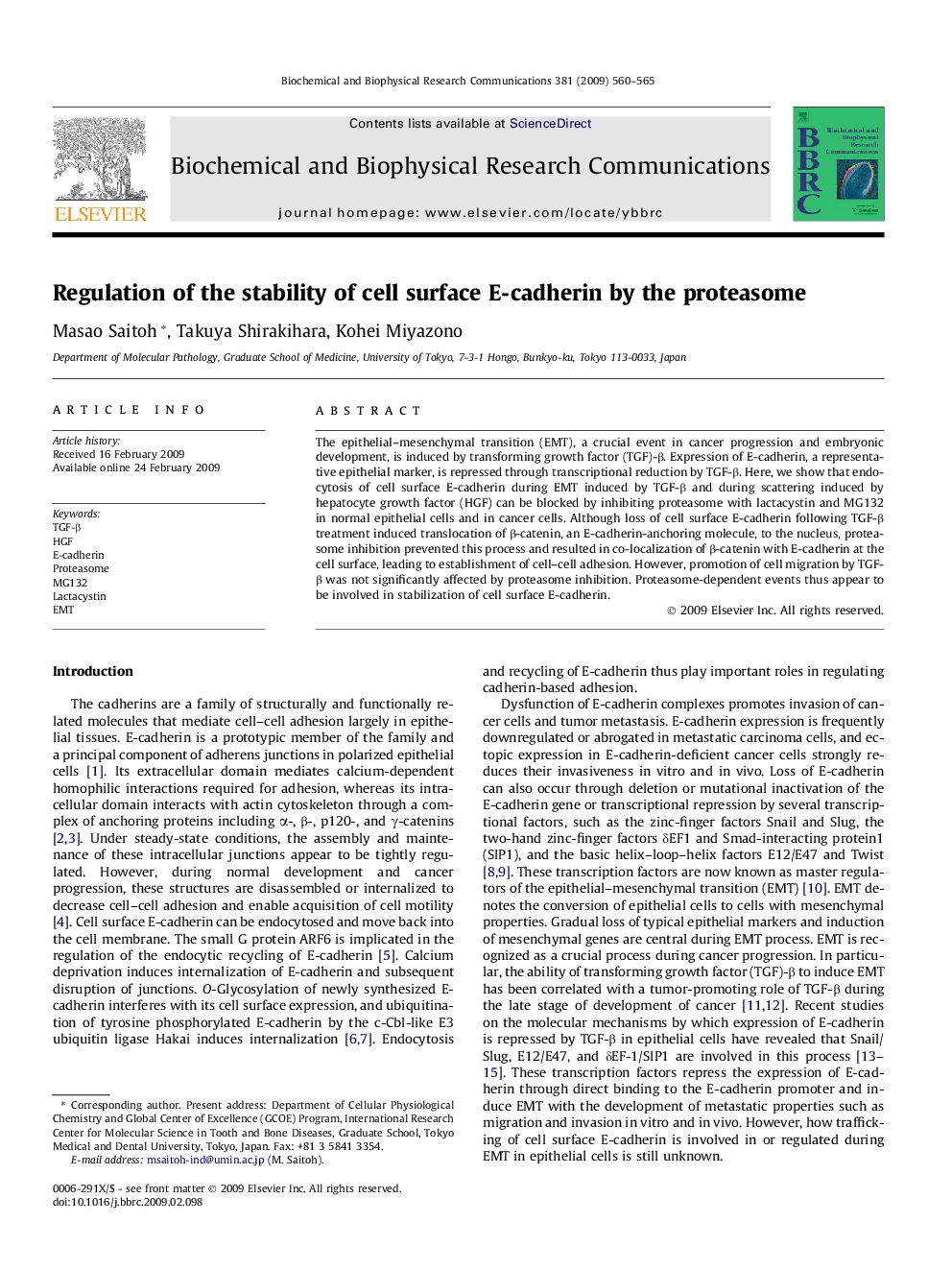| Article ID | Journal | Published Year | Pages | File Type |
|---|---|---|---|---|
| 10766052 | Biochemical and Biophysical Research Communications | 2009 | 6 Pages |
Abstract
The epithelial-mesenchymal transition (EMT), a crucial event in cancer progression and embryonic development, is induced by transforming growth factor (TGF)-β. Expression of E-cadherin, a representative epithelial marker, is repressed through transcriptional reduction by TGF-β. Here, we show that endocytosis of cell surface E-cadherin during EMT induced by TGF-β and during scattering induced by hepatocyte growth factor (HGF) can be blocked by inhibiting proteasome with lactacystin and MG132 in normal epithelial cells and in cancer cells. Although loss of cell surface E-cadherin following TGF-β treatment induced translocation of β-catenin, an E-cadherin-anchoring molecule, to the nucleus, proteasome inhibition prevented this process and resulted in co-localization of β-catenin with E-cadherin at the cell surface, leading to establishment of cell-cell adhesion. However, promotion of cell migration by TGF-β was not significantly affected by proteasome inhibition. Proteasome-dependent events thus appear to be involved in stabilization of cell surface E-cadherin.
Related Topics
Life Sciences
Biochemistry, Genetics and Molecular Biology
Biochemistry
Authors
Masao Saitoh, Takuya Shirakihara, Kohei Miyazono,
